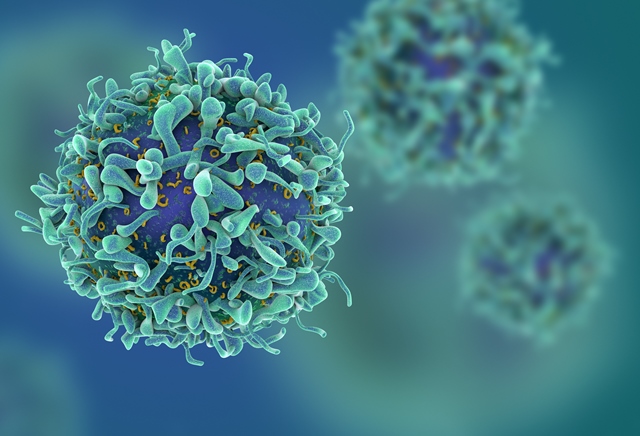BioNTech SE and Medigene AG, a clinical-stage immuno-oncology company focusing on the development of T cell immunotherapies, have entered a multi-target research collaboration to develop T cell receptor (TCR) based immunotherapies against cancer. The initial term of the collaboration is three years.
Medigene will contribute its proprietary TCR discovery platform for the development of TCRs against multiple solid tumor targets nominated by BioNTech. Medigene’s automated, high throughput TCR discovery platform is designed to bypass central tolerance to yield high affinity TCRs. T cell therapy has become a disruptive medical innovation in the treatment of patients with cancer. Engineered TCR-modified T cells (TCR-T cells) are reprogrammed to express a TCR that can recognize specific antigens only present on tumor cells, thereby enabling a precise and potent immune response to attack a patient’s tumor.
“This collaboration with Medigene expands our cell therapy portfolio and TCR discovery capabilities, and further strengthens our ability to be a leader in the rapidly emerging field of engineered cell therapies,” said Ugur Sahin, M.D., Chief Executive Officer and Co-Founder of BioNTech. “We look forward to working closely with Medigene to develop new treatments which address solid tumors with high unmet medical need.”
Prof. Dolores Schendel, Chief Executive Officer and Chief Scientific Officer at Medigene, said: “Medigene is at the forefront of the development of TCR-T therapies for oncology. The sale and licensing deal with BioNTech is an important validation from a global leading biotech company of our proprietary technologies to discover and characterize highly specific TCRs and empower resulting TCR-T cells to fight solid tumors. This partnership provides Medigene with meaningful financial resources to fuel our next generation development programs targeting potentially novel tumor-specific “dark matter” antigens, further tools to enhance T-cell-based immunotherapies, as well as additional potential strategic deals with future milestone payments and royalties.”
BioNTech will acquire Medigene’s next generation preclinical TCR program, which combines TCR-4 of Medigene’s MDG10XX program targeting PRAME with Medigene’s proprietary PD1-41BB switch receptor technology. BioNTech will also obtain the exclusive option to acquire additional existing TCRs in Medigene’s discovery pipeline and will receive licenses to the company’s PD1-41BB switch receptor and precision pairing library. This has the potential to augment TCR cell therapy efficacy and can be applied to all BioNTech cell therapy programs.
Under the terms of the agreement, Medigene will receive EUR 26 million upfront, as well as research funding for the period of the collaboration. BioNTech will be responsible for global development and hold exclusive worldwide commercialization rights on all TCR therapies resulting from this research collaboration. Medigene will be eligible to receive development, regulatory and commercial milestone payments up to a triple digit million EUR amount per program in addition to tiered deferred option payments on global net sales for products based on TCRs arising from the collaboration and royalties on products utilizing at least one of the licensed technologies.


